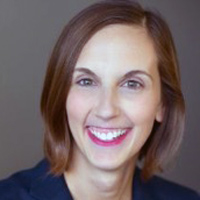How to Set Goals for Yourself and Make Them Happen
Do you want to change careers in 2018? Devote more time to volunteering? Or how about saving $50,000 over the course of the year? Here's how to set an attainable goal and really stick with it.


Profit and prosper with the best of Kiplinger's advice on investing, taxes, retirement, personal finance and much more. Delivered daily. Enter your email in the box and click Sign Me Up.
You are now subscribed
Your newsletter sign-up was successful
Want to add more newsletters?

Delivered daily
Kiplinger Today
Profit and prosper with the best of Kiplinger's advice on investing, taxes, retirement, personal finance and much more delivered daily. Smart money moves start here.

Sent five days a week
Kiplinger A Step Ahead
Get practical help to make better financial decisions in your everyday life, from spending to savings on top deals.

Delivered daily
Kiplinger Closing Bell
Get today's biggest financial and investing headlines delivered to your inbox every day the U.S. stock market is open.

Sent twice a week
Kiplinger Adviser Intel
Financial pros across the country share best practices and fresh tactics to preserve and grow your wealth.

Delivered weekly
Kiplinger Tax Tips
Trim your federal and state tax bills with practical tax-planning and tax-cutting strategies.

Sent twice a week
Kiplinger Retirement Tips
Your twice-a-week guide to planning and enjoying a financially secure and richly rewarding retirement

Sent bimonthly.
Kiplinger Adviser Angle
Insights for advisers, wealth managers and other financial professionals.

Sent twice a week
Kiplinger Investing Weekly
Your twice-a-week roundup of promising stocks, funds, companies and industries you should consider, ones you should avoid, and why.

Sent weekly for six weeks
Kiplinger Invest for Retirement
Your step-by-step six-part series on how to invest for retirement, from devising a successful strategy to exactly which investments to choose.
“Happy New Year! 2018 has got to be a better year for all.”
That’s a text message that greeted me the morning of Jan. 1. I was excited to see “Happy New Year” but saddened by the second sentence. It really got me thinking about the sender’s mindset.
Abundance vs. Scarcity Mindset
Any year has its share of ups and downs. But we can’t play the role of victim. A new year gives us an opportunity to start fresh. And that is directly related to the scarcity vs. abundance mindset. In the scarcity mindset, you’re operating from a needy place where you’re constantly concerned that there will never be “enough.” With the abundance mindset, you see the potential to move beyond present circumstances. You have hope in a brighter future. (For related articles, see John Maxwell’s tips or The Simple Dollar’s explanation).
From just $107.88 $24.99 for Kiplinger Personal Finance
Become a smarter, better informed investor. Subscribe from just $107.88 $24.99, plus get up to 4 Special Issues

Sign up for Kiplinger’s Free Newsletters
Profit and prosper with the best of expert advice on investing, taxes, retirement, personal finance and more - straight to your e-mail.
Profit and prosper with the best of expert advice - straight to your e-mail.
Achieve Your Goals
Operating with an abundance mindset also ties into goal-setting. You’ve likely heard of SMART goals — specific, measurable, achievable, relevant and time-bound. Familiarity is one thing, but application may be harder. If you’re serious about reaching your goals in 2018, there are two new books I’d recommend: Finish, by Jon Acuff, and Your Best Year Ever, by Michael Hyatt. Although they follow a similar theme, their approach and writing styles differ tremendously. Acuff adds humor, plenty of practical examples, and research-backed evidence. Hyatt took his popular “Best Year Ever” e-course and converted it to a book, offering a structured five-step plan to achieving important goals. He even includes a life assessment tool for progress checks.
Beat Perfectionism
The main premise of Acuff’s book is that we need to beat perfectionism to truly finish. Perfectionism shows up the day after we get started and then rears its ugly head again when we’re close to finishing. We need to make goals fun; if you don’t enjoy running, don’t set a goal to run a marathon this year. To avoid shiny-object syndrome, Acuff also encourages you to focus on one goal at a time rather than trying to work simultaneously on several different goals.
Follow a Plan
Hyatt encourages you to have eight to 10 annual goals, spread among interrelated life domains. For instance, if your marriage is already solid, it may be easier to cultivate a stronger relationship with your co-workers. Michael Hyatt also discusses the importance of setting both habit and achievement goals. If your achievement goal is to read 30 books by Dec. 31, your habit goal may be to read 30 minutes nightly, beginning today. Finally, Hyatt challenges you to uncover your “why” behind the goals; in other words, connect with your key motivations and identify potential stumbling blocks.
The Best is Yet to Come
Since I’m all about practical application, let’s walk through an example. Suppose you want to increase your financial net worth by $50,000 in 2018. Below are some of the principles you may want to follow.
- Believe the Possibility. Start with an abundance mindset and identify self-limiting beliefs that may have held you back in the past. Consider developing a simple mantra that you repeat verbally each day, such as “I am worthy of a bright financial future.” Even if you’ve struggled with debt in the past, don’t let that hold you back from achieving this goal.
- Design Your Future. Work through the SMART framework, establishing both achievement and habit goals. Your achievement goal is to increase your financial net worth by $50,000 by Dec. 31, 2018. Perhaps one habit goal is to contribute $1,541.67 monthly to your 401(k) plan, for a total of $18,500 (the maximum employee contribution in 2018) and $2,500 monthly to your emergency fund. The final $1,500 of your big $50,000 goal could be accomplished through market appreciation or an employer 401(k) contribution.
- Determine Your Why. Figure out why this goal is truly meaningful to you. Will it help you to retire one year early? Are you saving for a big trip in 2019? When $2,500 monthly savings outside of the 401(k) seems like too much, reconnect with this “why.”
- Cut the Goal in Half. Maybe $50,000 truly is out of reach. Would cutting the goal in half, to $25,000, make the difference between achieving your goal and letting it disintegrate? The beauty of goals is that they can be revised. You don’t want to be like 92% of people whose New Year’s resolutions fail within a matter of weeks.
- Use Data to Celebrate Progress. Know ahead of time what rewards you will use to celebrate small wins. Make those incentives meaningful to you, and find a tracking tool to monitor progress. My clients have access to an online portal that shows all investment accounts, but a simple Excel fie that you manually update monthly could work, too.
A Final Word
As a fee-only financial planner, my only compensation comes directly from clients. I don’t earn any commission from recommending books or other products. In fact, I recently purchased a few copies of the books as a welcome gift for new WorthyNest clients.
In closing: What is one 2018 goal you have that scares you a little bit? Please post your comments on my blog.
Profit and prosper with the best of Kiplinger's advice on investing, taxes, retirement, personal finance and much more. Delivered daily. Enter your email in the box and click Sign Me Up.

Deborah L. Meyer, CFP®, CPA/PFS, CEPA and AFCPE® Member, is the award-winning author of Redefining Family Wealth: A Parent’s Guide to Purposeful Living. Deb is the CEO of WorthyNest®, a fee-only, fiduciary wealth management firm that helps Christian parents and Christian entrepreneurs across the U.S. integrate faith and family into financial decision-making. She also provides accounting, exit planning and tax strategies to family-owned businesses through SV CPA Services.